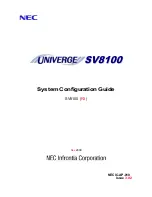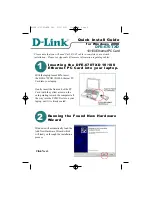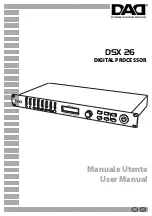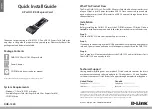
37-33
Catalyst 3750-E and 3560-E Switch Software Configuration Guide
OL-9775-08
Chapter 37 Configuring QoS
Configuring Auto-QoS
Switch(config-pmap-c)#
police 10000000 8000 exceed-action policed-dscp-transmit
Switch(config-pmap)#
class AUTOQOS_TRANSACTION_CLASS
Switch(config-pmap-c)#
set dscp af21
Switch(config-pmap-c)#
police 10000000 8000 exceed-action policed-dscp-transmit
Switch(config-pmap)#
class AUTOQOS_SCAVANGER_CLASS
Switch(config-pmap-c)#
set dscp cs1
Switch(config-pmap-c)#
police 10000000 8000 exceed-action drop
Switch(config-pmap)#
class AUTOQOS_SIGNALING_CLASS
Switch(config-pmap-c)#
set dscp cs3
Switch(config-pmap-c)#
police 32000 8000 exceed-action drop
Switch(config-pmap)#
class AUTOQOS_DEFAULT_CLASS
Switch(config-pmap-c)#
set dscp default
;
Switch(config-if)#
service-policy input AUTOQOS-SRND4-SOFTPHONE-POLICY
Effects of Auto-QoS on the Configuration
When auto-QoS is enabled, the
auto qos
interface configuration commands and the generated global
configuration are added to the running configuration.
The switch applies the auto-QoS-generated commands as if the commands were entered from the CLI.
An existing user configuration can cause the application of the generated commands to fail or to be
overridden by the generated commands. These actions occur without warning. If all the generated
commands are successfully applied, any user-entered configuration that was not overridden remains in
the running configuration. Any user-entered configuration that was overridden can be retrieved by
reloading the switch without saving the current configuration to memory. If the generated commands are
not applied, the previous running configuration is restored.
Auto-QoS Configuration Guidelines
Before configuring auto-QoS, you should be aware of this information:
•
After auto-QoS is enabled, do not modify a policy map or aggregate policer that includes
AutoQoS
in its name. If you need to modify the policy map or aggregate policer, make a copy of it, and change
the copied policy map or policer. To use this new policy map instead of the generated one, remove
the generated policy map from the interface, and apply the new policy map to the interface.
•
To take advantage of the auto-QoS defaults, you should enable auto-QoS before you configure other
QoS commands. If necessary, you can fine-tune the QoS configuration, but we recommend that you
do so only after the auto-QoS configuration is completed. For more information, see the
“Effects of
Auto-QoS on the Configuration” section on page 8
.
•
You can enable auto-QoS on static, dynamic-access, voice VLAN access, and trunk ports.
•
By default, the CDP is enabled on all ports. For auto-QoS to function properly, do not disable CDP.
Auto-QoS VoIP Considerations
•
Auto-QoS configures the switch for VoIP with Cisco IP Phones on nonrouted and routed ports.
Auto-QoS also configures the switch for VoIP with devices running the Cisco SoftPhone
application.
Note
When a device running Cisco SoftPhone is connected to a nonrouted or routed port, the
switch supports only one Cisco SoftPhone application per port.
Summary of Contents for Catalyst 3750-E Series
Page 48: ...Contents xlviii Catalyst 3750 E and 3560 E Switch Software Configuration Guide OL 9775 08 ...
Page 52: ...lii Catalyst 3750 E and 3560 E Switch Software Configuration Guide OL 9775 08 Preface ...
Page 1414: ...Index IN 58 Catalyst 3750 E and 3560 E Switch Software Configuration Guide OL 9775 08 ...














































